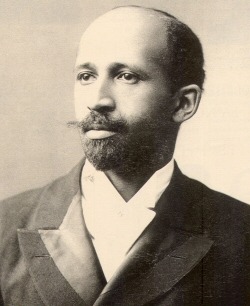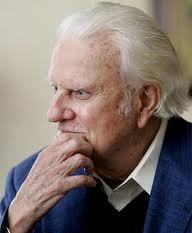Text
"First Class!"

It came easy. The idea to share a story from my writing over a decade ago for my father-in-law’s funeral, was a no-brainer. For most of my life with him, he always responded to my greeting, “how are you doing?” with two simple words: “First Class!” So, it is in his honor and hopefully for your enjoyment that I share it with you here.
It came as a surprise. Matter of fact, it had never happened. There I was sitting in first-class seating on an American Airlines flight out of Orlando, the gift of a crowded flight and coach-class seating draw.
It was so strange. I didn’t know how to act. However, I quickly noticed there was a certain etiquette to being first-class. By definition, it means “given or entitled to preferred treatment and handling.” Now I know what it means.
Being first-class means acting like you belong there. Holding my ticket stub and nervously watching every person board with a “Yes, I do belong in this seat” look on my face is not appropriate behavior for a first-class citizen. Sitting in only half my seat and wondering what to do with the rest is not the proper posture for the upper crust of frequent flyers and world travelers. So, I got over it.
Being first-class means acting like you expect to be treated kingly while roosting on your royal throne. It means not being surprised when you get your choice of drink served in a real glass, even before the buckle on your seat belt is snapped. It means not screaming with delight when you discover the meat and rolls with your meal were actually heated separately. It means not bellowing, “you’ve got to be kidding me” when offered the choice of a red or white wine with your meal. It means not using your pre-dinner, warm washcloth to wash your seating area, but waiting to see the others use it to freshen up their hands and face before the feast. So, I got over it.
While peering out the airplane window into the clouds, I could not keep from drawing a faith parallel to my first-class experience. My first-time encounter with the grace of God was a lot like discovering we have been moved to a first-class window seat next to the pilot when we actually spent all we had a lower-class coach seat next to the roar of the engines. But unlike my first-class experience, I have never gotten over my grace experience and neither did Arthur O. Little. No, he lived with the daily declaration that his walk with Christ was always, “First Class!”
0 notes
Text
“We read to know that we are not alone.” William Nicholson, Screenwriter of Shadowlands

One of the first things I did with Jensen, my 3-year-old granddaughter, when I got back from vacation was do with her what I had been doing by myself, albeit on the beach. I read to her.
She took me to her room, showed me her new “stuff” and then pulled a book off her shelf and wanted me to read it to her. It was a book about “Little Cloud” and I read it to her twice.
So, it got me to thinking about the benefits of reading and my “reading” led me to an article entitled “8 Benefits of Reading (or Ways Reading Makes You Better at Life).” I like the second title best.
The eight reasons the author gives are as follows:
Enhanced smarts
Reading reduces stress
Greater tranquility
Improved analytical thinking
Increased vocabulary
Improved memory
Improved writing skills
Helps prioritized goals
While I like all the reasons, I am most drawn to 1, 2 and 8. I am a lifelong learner and reading is the key to my progress. I need times when I reflect and lower the stress that surrounds me. I need to sharpen the priority of my goals.
That said, I want to recommend two books. One of them is the book being used in the series I am teaching now, Wild Goose Chase. The other one is written by a lawyer friend of mine, Lyn Robbins, who is going to be leading my deacon retreat in a couple of weeks and it is titled, In the Court of the Master. Both are well written and will meet at least 6 or the 8 reasons about why you should read. So, go read and realize “we read to know we are not alone.”
0 notes
Text
"Sounding Off About Sacred Delight"

Ready or not, here it comes! It, in this case, is the weekend that signals the arrival of summer, Memorial Day weekend. From the “did you know?” category, did you know there was a time when Memorial Day, the day set aside to honor those who gave their lives for our country, was always on May 30? However, in order to guarantee a three-day weekend, Memorial Day was placed on the last Monday in May.
Through my years of reflecting on Memorial Day, I now understand it is not enough to remember the honored casualties of past conflicts. Honestly, the best thing we can do in their honor is to ensure that they have not died in vain. They died to build or to defend a better world. The least we can do is to live for those same purposes.
As I apply this understanding to our church, I am left with the question—are we doing our best to build a church that defends and offers a “better world?” And what does “better” really mean? Certainly, it means improved or superior, but maybe there is more to it. When you look at the statement “It is better to give than to receive” in the Bible, it is interesting to notice the words offered as coming from the lips of Jesus: “It is more blessed to give than to receive.” (Acts 20: 35)
“Blessed”—is a powerful word! One of Jesus’ most powerful messages comes when he uses this word nine times. It is the Sermon on the Mount and nine times he promises to the most unlikely that they will be “blessed.” Max Lucado updates this word by defining it as “sacred delight.” He says, “It is sacred because only God can grant it. It is a delight because it thrills. Since it is sacred, it can’t be stolen. And since it is delightful, it can’t be predicted.” (The Applause of Heaven, p. 11)
How has God’s “sacred delight” thrilled you this week? For me it has been easy and ever-present. It came with a friend’s surprise and extended time of encouragement and affirmation. It came when I opened my phone and found the picture and recording of my granddaughter’s giddy laughter. It came with an understanding embrace of a joyful, faithful wife. It came when I slowed down enough to honestly seek God’s presence.
As we begin our journey from spring into summer, may we do so with the clear and overwhelming direction of God’s sacred delight!
0 notes
Text
"Flaky, But Faithful"

For the past couple of weeks, snow has covered our yards so you will not be surprised if I talk about “snowflakes.” How about the story of a man who named the snowflake?
Wilson Alwyn Bentley lived in Vermont and was fascinated by snow. He found a way to put snowflakes on black velvet and photograph them, testing the hypothesis that no two are exactly the same. He photographed and published more than 5,000 individual snowflakes, and was given a nickname — “Snowflake.”
Bentley, who lived from 1865 to 1931, examined snowflakes under a microscope and discovered they were all miracles of beauty. “Every crystal was a masterpiece of design, and no one design was ever repeated,” he wrote.
He is not the only person who should be given the nickname “Snowflake.” We all should. Each of us is a miracle of beauty, a masterpiece of design, and no one design is ever repeated.
Are we irregular? Of course! All kindsof irregularities — physical, mental, emotional, spiritual, you name it. We are irregular human beings but still miracles of beauty, shaped in uniqueness by a loving and creative Creator.
Psalm 27 begins with the words, “The Lord is my light and my salvation; whom shall I fear? The Lord is the stronghold of my life; of whom shall I be afraid?” If we are, in fact, God’s snowflakes — precious, unique and transient — then we need a Lord to sustain us. Otherwise, we are going to melt, disappear and be lost forever.
Bible scholar J. Clinton McCann points out how these words challenge us to make a choice between faith and fear. Either we make the faith choice, seeing God as “my light and my salvation,” or we make the fear choice, looking for the answer to the question, “whom shall I fear?”
We do not have to go far to find something to fear. We know we are vulnerable to physical illnesses, emotional distresses, relational breakdowns, economic stresses and spiritual crises. Sometimes we feel as delicate and transient as snowflakes. But if we make the faith choice, our future looks different. We are not so vulnerable if we put our trust in God to sustain us.
In 1988, two identical snowflakes were discovered and photographed, disproving the hypothesis that no two are exactly the same. Poor “Snowflake” Bentley would have been disappointed.
But human beings can still be miracles and masterpieces while having important things in common — particularly our shared need for God’s presence and power. We can hold onto our individual identities and distinctive characteristics while working together to choose faith over fear. And there is nothing flaky about that!
0 notes
Text
"Knowing Is Simply Not Enough"

January is the month of hopes and dreams. It comes from “Janus” who was an ancient Roman god of doorways, of beginnings, and usually represented by one head with two bearded faces back to back, looking in opposite directions.
For faith people with new beginnings, it is always important we know in what direction we are going. For a church, that means correctly understanding availability and appropriation.
In his book, Overhearing the Gospel, Fred Craddock points out, “Knowledge about ethical concepts does not make one ethical. Burghardt DuBois, the great black educator, sociologist, and historian, upon completion of studies at Fisk, Harvard and University of Berlin, was convinced that change in the condition of the American black could be effected by careful scientific investigations into the truth about the black in America.
“So he proceeded. His research was flawless and his graphs and charts impeccable. After waiting several years and hearing not the slightest stir of reform, Dr. DuBois had to accept the truth about the Truth: Its being available does not mean it will be appropriated.”
Good words for a new year. It is not enough that we know Christ died for us and, through His resurrection, provided a way for eternal life. It is not enough that we know about the abundant life that is possible through a daily walk with Christ. No, knowing all of that is simply not enough. That is called availability and what must follow is appropriation.
Appropriation is when we do something with that knowledge. Appropriation is when we make that information available to family, friends, co-workers, and acquaintances that intersect our lives. Appropriation is what happens when we realize that the Gospel always has two faces—the face of God as He searches for us and the face of God as He is revealed through us to others. It was always meant to be that way.
So, may 2013 be the year that WE more clearly and dearly appropriate all that God through Christ has done and is doing for us. Thanks be to God!
0 notes
Text
“Evil, Tragedy and God”
It’s back again. The “it” I am talking about is the tragedy and suffering question—why does a good God allow bad things to happen to good people? The tragedy of December 14, 2012 will live in all of us for quite a while because it questioned both God’s love and His power.
So, from my daily devotional writer, Jim Denison, I want to use his thoughts and my experience to help all of us with this issue of the “evil, tragedy and God.” Let’s break it down into “bite-size” pieces.
Foundational to all that we will say, please realize that the “why” question is not one the Bible shies away from as we see in the life of Habakkuk. He complained to God about the devastation of his people at the hands of the Babylonians: “Your eyes are too pure to look on evil; you cannot tolerate wrong. Why then do you tolerate the treacherous? Why are you silent while the wicked swallow up those more righteous than themselves?” (Habbakuk 1: 3) Jesus even cried from the cross, “My God, My God, why have you forsaken me?” (Matthew 27: 46).
We who follow Christ are especially susceptible to this issue because we believe three seemingly contradictory facts to be equally true:
· God is all-loving.
· God is all-powerful.
· Evil exists.
And for people who deny God, the easiest way to do this is to minimize one of these three conditions.
First, regarding the love of God, many today view life as random coincidence and that if there is a “God” he has little interest in us. He is a clockmaker, watching his creation wind down.
Second, regarding the power of God, it is popular to see God and Satan, good and evil locked in a battle for supremacy. Very popular a few years ago, the book When Bad Things Happen to Good People agrees that even God is not able to do everything he wants to do.
Third, regarding the existence of evil, the worldviews are all over the map. Hindu tradition views evil as an illusion. Ancient Greeks saw evil as the product of the material world to be escaped through ascetic discipline or philosophical reflection. The Buddhist treats evil as the product of wrong desires. Hinduism likewise believes that suffering results from wrong choices.
But as you might expect, none of these satisfy the deepest part of us. Christians, sensing more, have wrestled throughout the history of our faith and have developed five basic approaches to the question of suffering and evil:
The spiritual warfare model . . . identifies that Satan is real and much of the pain and suffering in our world is attributable to his malignant work. However, not all suffering is a direct result of Satan’s plan. Our ability to make choices and counter what Satan is doing will in fact bring some level of pain and suffering.
The free-will model . . . is usually based on the following assumptions: God created everything and he created it good. Before the fall, evil was present but not yet reality, at least from our ability to choose it for ourselves. God then created humans with freedom of will and we have used this freedom to bring evil into existence, which absolves God of the blame.
The soul-building model . . . believes that God can redeem any suffering and pain for God’s glory and our good. The weakness of this view revolves around the existence of Hell, since it is not a soul-building or redemptive reality.
The eschatological (big word meaning “future”) model . . . asserts that evil will be resolved in the future, making present suffering endurable and worthwhile. This view does not solve how the promise of future hope makes present courage possible.
The existential model . . . is more practical than theoretical. It says that God suffers as we suffer and gives us strength to withstand and even redeem our pain. But it offers no real explanation for the origin or existence of suffering.
So, how can we “apply” all this information to our world of suffering?
First, utilize the “free-will” approach to examine the origin of suffering. Is there sin involved? Is this pain due to the result of misused freedom? Do a spiritual inventory but do not assume that suffering is always your fault.
Second, use the “soul-building” approach to ask—what can I learn from this situation? Strive to be open to every source of spiritual source. Stay close enough to Jesus so that you can hear his voice and feel his touch.
Third, use the “future hope” approach to ask—how can God redeem this present suffering for future good? We may not be able to see the future, but we can believe that is real and that God is IN it working for our good.
Finally, utilize the “existential” approach to trust God’s help in the midst of our pain. Nothing can take you from his hand (John 10:28).
So, look at our world with a tear in your eye, knowing that God is still God and then go and live like you believe it. Someone will notice!
0 notes
Text
A Christmas Watch: "The Way"

Christmas, besides being one of the “holiest” times of the year, is also a time for food, family and fun. Movies are planned to premier at this time of year recognizing the relaxed schedule. If you go to a movie, you must see “Lincoln.” I will write about it in another article, but outside of some language, you will be thrilled and inspired by Steven Spielberg’s view of our 16th president.
However, if you want to stay home and avoid the crowds, here is my suggestion. Rent the film, The Way. As preparation, allow me to offer a historical overview.
The Camino De Santiago is a 500-mile footpath that begins in France and ends near Spain's northwestern corner. Since the 9th century, when pilgrims first began walking it on their way to view the relics of the Apostle James, it has become one of the world's great spiritual destinations. By the 14th century, as many as 25% of all Europeans had walked the Camino. Even today, over 200,000 hikers complete the pilgrimage every year.
The 2011 film, The Way, takes place along this famous footpath. It is the story of Tom, an American doctor (Martin Sheen), who makes the journey after his adult son Daniel dies while attempting it. The two of them had parted on bad terms; Tom felt his son was wasting his time, and his life, undertaking the pilgrimage. After the death, he feels compelled to bring Daniel's ashes with him to Spain, and honor his son's memory by completing his journey.
Along the way, he is acquainted with three misfits, each with his or her own story. Like all human stories, they are a mixture of tragedy and comedy.
The movie is not so much about the place as it is the journey. And so it is with life . . . as is so carefully portrayed in the Christmas journey. Pursue as we will the events of Bethlehem, ultimately and intimately, it is not about the place but the journey it reveals.
Christ makes the journey to earth to show us the journey to heaven and only then do we realize, heaven is not simply a place we are striving to go, but a journey we are privileged to live. Remember, the Christ child became the Christ man and said, “I am the Way, the Truth and the Life, and no one comes to the Father but by me” (John 14: 6). Thanks be to God!
3 notes
·
View notes
Text
"Difficult Questions About One of My Heroes"

I do my best to stay out of politics, but in my journey to be an “astute” observer of life and religion, politics often whack me “up-side-the-head.” Such was the case when I saw a full-page ad in the Sunday newspaper from one of my heroes, Billy Graham. Then I read an article by Adelle Banks, an award-winning writer for the Religion News Service. Her article raises some questions I want you to think and pray about as you try, like me, to vote with my head, my heart and my values.
Her article is entitled “Why Is Billy Graham So Involved In the 2012 Election?” She identifies a recent meeting with GOP presidential nominee Mitt Romney followed by the Billy Graham Evangelistic Association scrubbing language from their website describing Mormonism as a “cult.” Two days later, the ministry announced a “vote biblical values” campaign, with Graham’s photo and signature accompanying a statement opposing abortion and supporting traditional marriage.
Her question is a valid one: why is the famed evangelist, who has said he learned hard lessons about being too political, getting involved in 2012 elections? Some suspect it is due to Franklin Graham, his son and president of the Billy Graham Evangelistic Association. “If not a new turn, he’s further down the road, with expressing a preference for a candidate,” said William Martin, author of A Prophet With Honor, a 1992 biography of Billy Graham. “I’m reasonably certain that he’s not done this before.”
Martin goes on to say that while Graham has met with every president since Harry Truman, he is coy about those relationships. Graham’s grandson, Reverend Tullian Tchividjian, remembers his grandfather feeling the fallout of his close friendship and support for President Richard Nixon, which led to a divine warning that he was primarily a preacher and not a politician.
So, my questions are as follows:
How do you feel about religious icon, Billy Graham, weighing in on the election? Before you answer that, recognize that law mandate “preachers” NOT to endorse political candidates or our churches/organizations could lose their tax-exempt status. Also, is your answer to this question based less on your agreement with Billy Graham than your agreement with your particular political candidate, in other words, since his statements favor your political candidate, you will agree with him or since his statements don’t favor your political candidate will you disagree with him?
Is it more important to vote for someone who is not a “Christian” (by definition, Mormonism is a cult) but supports your view about marriage or abortion or is it more important to vote for someone who is a “Christian” (our president says he is a Christian) but does not support your view of marriage or abortion, however, they do support Christ’s mandate to feed the poor?
Is your head exploding yet? Mine often is when I try to process my head, my heart and my values. Please think and pray about these and all of the other issues facing our nation at this time of the year and speak kindly and honestly to all those who disagree with you.
0 notes
Text
“Something the Candidates Can Finally Agree On?”
What do the two candidates running for president have in common? Really. If you watch the candidates from a “fair, non-snarky” point of view they are both a bit “aloof” and from someone who has been accused of the same, I do not necessarily think that is a bad thing. Add to that, I found someone who agrees with me. Evan Thomas, in an article from Time magazine, “The Upside of Mystery” makes an excellent observation.
Having written a book on former President Eisenhower, he concludes that Ike would have disliked just about every aspect of the 2012 presidential election: “He would not have understood why candidates’ wives should give speeches to humanize their husbands or why presidential aspirants should disclose much of anything about their faith or private lives.”
Yet, the more he analyzes the two candidates, the conclusion is clear: “Romney can come off as plastic, Obama as aloof; they are both deeply private men who would have been more comfortable as politicians in an earlier, more buttoned-up time.”
Fact is, both men are more naturally inward and it is worth noting that the most important decisions a President makes are lonely ones.
Honestly, isn’t that the case for all of us who believe deeply in spiritual relationships? Isn’t that the case for those of us who recognize life is lived from the inside out? Isn’t that the case for those of us who think and listen and pray before we speak?
Wherever you are today, I hope you will be reminded, as I was this week, faith in God is about listening. Worship is about being present to your surroundings so you can create the space necessary to ease the world out and soak the Lord in.
James 1:19 says it best: “Let every person be swift to hear, slow to speak, slow to wrath.” No, inward isn’t all bad, especially when you are listening to God!
0 notes
Text
"A Tale of Lost Limbs and Found Lives"

This is a tale of a marine and an orphan, born over 5000 miles from each other, who find each other because of what they have lost.
Oksana Alexandrovna Boudarchuk is born in Khmelnitsky, Ukraine on June 19, 1989 with 6 toes, 5 webbed fingers on each hand, and no thumbs, a condition called “tibial hemimelia.” Her leftleg is 6 inches shorter than the other and both legs are missing weight-bearing bones. Her parents go “missing in action” and she begins a lonely and catastrophic journey through revolving orphanages where she is beaten and raped with regularity.
Rob Jones grows up on a 200-acre farm in Lovettsville, Virginia where his small stature brings alarm to his parents. After his doctor’s clearance to play sports, he does so until the 10th grade when he decides to escape into the world of computer games and entertains the possibility of becoming a video-game developer.
A single woman and speech pathology professor, Gay Master from Buffalo, New York, begins her search for a newborn baby to adopt, until someone shows her a picture of Oksana and she declares, “That’s my child.” Only after persevering the 2-year ban on Ukrainian adoptions does her dream come true. A late night in January of 1997, Gay finds Oksana wrapped in a sweater in a freezing building. When she wakes up she says in Ukrainian, “I know who you are. You’re my mother. I have a picture.”
Fast-forward to Rob’s junior year at Virginia Tech University and you find him making the decision that will change his life forever. He signs up for the Marines with no real clear reason: “I realized that there are things out there that are more important than me.” Despite no strong political or moral reasons, “or even the ‘why’ of his country’s wars in Iraq and Afghanistan; he just wanted to live through the what of them.”
Oksana and Gay move to Louisville, Kentucky in 2001 and it feels like an avalanche of change for the budding teenager. A surgery to remove the leg above the knee followed by therapy and prosthetic legs stretch the boundaries for this painfully self-aware 12-year old. At age 13 and before her second amputation, she learns the “privacy” of rowing. As she attacked the water, “the central theme of her early life was inverted. She could be as violent as she wanted, while everything around her stayed serene.”
Rob enlists in January of 2008 and goes to Iraq as a lance corporal specializing in IED (improvised explosive device) detection. His tour of duty ends in August of that same year, but in April of 2010 he is deployed to Afghanistan. One day in July while clearing the area after a blasting cap explodes, an IED blows his legs off. In his shock and disorientation, he asks a fellow marine to kill him. After a morphine injection, he flies to his base and then Germany before finally landing back in the states at Bethesda Naval Hospital 3 days later. By then, he has changed his mind about ending his life.
I discover what brings this marine and orphan together when I read their amazing story in a Sports Illustrated article by Michael Rosenbergat the end of August. They are training for the Paralympics in London in the mixed double sculls, where I later discover they win a bronze medal, the first U.S. medal ever in this event.
What brings them together is their loss . . . their loss of limbs and heightened awareness of life’s fragile nature. Both remember moments of life ending and then suddenly beginning again.
What brings them together is their pain . . . the pain of their past and the ongoing “phantom” pain of their present. Both speak to the moments when bursts of pain come to the legs they no longer have.
What now sends them on their way is the belief that they will not waste a single day of their life. And neither should you!
1 note
·
View note
Text
“God Redeems All He Allows!”

I remember these words every time tragedy stikes: “these tragedies have taken away our ability to find words with enough power or pain to express our experience.” Well, I am going to try.
C. S. Lewis’ words have never been truer: “God whispers in our pleasures, speaks in our conscience, but shouts in our pain.” I suspect this says more about us than it does about God. I think that God is always ready to speak, but we tend not to listen until our pain threshold renders us utterly helpless and hopelessly needy. Right now, we are both.
Let me be clear. I am not one who believes that God had any part in the planning and scheming of the Colorado killer. I know those who differ in a weird sort of way. They quote Old Testament passages and they say “God needed to get our attention to turn us back to Him!”
Let me be even clearer. While I do believe that God “allowed” (due to the fact that He is God and did have the power to stop it), I do not believe He “caused,” conspired or otherwise was partner to the devastation of lives last week. Clear and simple, in the early minutes of Friday morning, July 20, 2012, Aurora, Colorado had an encounter with evil.
So, what do you do when you have an encounter with evil? Well, Jesus had some experience with that and he said three clear things: you don’t live by bread alone, you should worship only God, and you should not put God to a test. (Luke 4: 1-13) Not a bad thing to remember this week as we make your way through the grief and numbness of evil’s sucker punch.
Mark it well my friends, evil will not win. Even with the ongoing concerns with those suffering with injuries, every day is a front-page announcement to the good that can and will come from the sacrifice of people who choose hope over fear, unity over disarray and faith over fate. Can those of this killer’s bullets be counted among those who took evil’s best shot and lived and loved their way through it. The apostle Paul explained how this could happen when he said, “I can do all things through Christ who strengthens me!” (Philippians 4: 13)
Yes, evil struck again and we do not know why God allowed it, but as my friend, Jim Denison, says regularly, “God redeems all he allows, even the horrific misuse of freedom he gave us so we could love him and each other! (Matthew 22:37-37)”
0 notes
Text
"Finding Sadness and Gladness"

I recently read two stories that bring me sadness and gladness: one about the meeting of the Southern Baptist Convention and their attempt to “get the fires” of evangelical fervor burning and then one about the devastating wildfires looming over Colorado Springs.
Sadly, the first story was more of a “simmering out” of the once proud (maybe that was the problem) Southern Baptist Convention I cut my theological teeth on and is not the real emphasis of this writing today, but it makes me sad.
The other story is one that provides an odd backdrop to my denominational convention and it makes me glad. It is the story of 5,000 women In Colorado Springs lifting their voices in praise and worship to God at a Living Proof Live conference featuring Bible teacher Beth Moore.
As most are aware, fires have devastated nearly 18,000 acres in the Waldo Canyon area of Colorado Springs, burning 100s of homes and forcing the evacuation of 32,000 people. Auuthor and Bible teacher Moore said, "There was no doubt that this is where we needed to be this very weekend."
It is important to realize that Living Proof live events are sponsored by LifeWay Christian Resources of the Southern Baptist Convention which is the backdrop for both my sadness and gladness.
In a subdued beginning to the conference, Moore set the tone by saying, "Pain, peril and threat put us in a posture to listen [to God] like nothing else.” She then asked women who had been evacuated or lost their homes entirely to stand and allow others to pray for them. Moore prayed for the 65 women and led the attendees in a reverent responsive reading.
Moore debated whether she should change her material because of the emotional weight the fires brought to the Colorado Springs community but concluded her message was applicable.
"Sometimes we need a new start, but what we need more often is a good finish," Moore said, directing attendees to Acts 20:24 as her focal passage. "You and I live in a culture of a million starts and a handful of finishes. We need the strength and presence of mind to finish well."
Colorado Springs resident Danielle McIntire said the local wildfires "are the worst thing we've ever had to deal with, and it has been truly frightening. But this event is exactly what we needed. Beth has reminded us to look at this through God's eyes and give our burdens to Him.”
"So many have lost everything they have and feel like it's the end," McIntire said. "So what a perfect topic for us -- God's not done. It's not the end."
Worship leader Travis Cottrell announced Friday night that 100 percent of a special offering taken would be directed to relief efforts in Colorado Springs.
Cottrell added -- to applause -- that Moore's Living Proof Ministries would match the offering dollar-for-dollar. "Let's shake the earth with our giving spirits," he said. Attendees gave $85,591, for a total offering of $171,182 contributed to relief efforts in the surrounding communities.
Wonderful you say. Yes it is. But do you not find it sadly interesting that Beth Moore is a woman and a phenomenal Bible teacher that serves in a denomination whose recent statements about women would not allow her to teach a Bible Study class in many of that denomination’s churches let alone be a pastor? Also note, her Bible teaching, books and conferences make millions of dollars for LifeWay Christian Resources of our convention and I, for one, suspect that is one of the reasons our denomination is in decline. And please know, I find no gladness in this.
0 notes
Text
"The Spiritual Stuff of Spider-Man"

I was not naturally drawn to comic books as a child. My brother, Buddy, was a different story. I still see him buried in the pages, one hand behind his head, a single finger twirling his hair in circles.
Eventually, I came around. I read anything he read, but it was Spider-Man who settled into my imagination. While my admiration remained dormant through the years, I am drawn to the debut of yet another rendition of Spider-Man on the big screen. Perhaps a history lesson will help the uninitiated.
Peter Parker is a high school student bitten by a radioactive spider resulting in super strength along with the ability to stick to walls and ceilings. He invents a device enabling him to shoot webs and swing high above the city streets. He wears a Spider-Man costume and fights criminals, including super-villains Green Goblin and Doctor Octopus.
A compelling and misunderstood character, Peter is persecuted by the community he tries to protect. Uncertain if Spider-Man is a vigilante or a criminal, the city leaders become suspicious and the local newspaper launch a campaign against the “Spider-Man menace.”
Part superpower, part awkward teen teased by his peers, we watch Peter grow up from high school student to college student to married teacher to single, freelance photographer. His story, told in a myriad of ways through the years, will be re-introduced this week in a new movie which takes us back to Peter Parker’s high school days and the “untold story.” (I saw it on July 4th with my friend Dennis Wainright.)
You will not be surprised when I make simple reflections of the spiritual similarities between Peter Parker/Spider Man and Jesus. The first one is all too obvious.
Like Spider-Man, Jesus is always being attacked for doing good. His identity with the downtrodden and ritually unclean cast him in a negative light with the status quo. Misunderstanding will be constant companions of those seeking to feed the poor and heal the sick.
Like Spider-Man, Jesus reminds us of what we can achieve. We can be insecure, awkward and still accomplish incredible things. While none of us is God, we can all participate in good and Godly activities. The Spider-Man story reminds us that we can overcome our human faults, fears, handicaps and uncertainties. We can be ALL we were created to be and that is always more than we think and believe.
Like Spider-Man, Jesus reminds us of the power of vocation. Nearly all superheroes – especially at the beginning of their careers – grapple with how they can best use their unique talents. In the case of Spider-Man, the proverb, "With great power comes great responsibility" rings with authority.
Superheroes aside, God has given us the power to live good lives even when attacked for doing so because we incessantly believe we can be someone who has the power to make a difference with what we do. May we do so!
0 notes
Text
“The Ultimate Wager”

She nods in my direction as I enter the Foxboro Sports Tavern in Naples, Florida. The senior waitress by a couple of decades, she says I can sit wherever I like. I am a regular over the last week, but this is the first time she is my server. She provides excellent service and I tip her appropriately.
The next day we are on first name basis, “Dan” and “Peggy.” She leads me to my normal seat and asks which games I want to see. I tell her my three choices and she conveys my request to the remote control “controller.” When she returns to my table with my drink, she smiles and asks a never before asked question: “Are you a bookie?”
I doubt many people in Kentucky do not know what a bookie is, but let me remind you. A “bookie” is someone who facilitates gambling, commonly on sporting events, by setting odds, accepting and placing bets, and paying out winnings on behalf of other people. "Bookie" is a slang term for "bookmaker." Bookies do not usually make their money by placing bets themselves, but by charging a transaction fee on their customers' bets known as a "vigorish," or "the vig” also call the “juice, cut or take.” Bookies may also lend money to bettors.
I smile, say no, but thinking back, her response makes sense. “I see you in here every day, you watch several games and you are always on your computer. I thought you might be a bookie!” Then, I simply say, “No, actually I am a minister.” Pregnant pause, then she says, “Wow, that is great. I am very spiritual too.”
Peggy and I become friends, speaking every time I come to eat. I know her story of alcoholism and 10 years of sobriety. I know her story of infertility until the year before her husband dies. I meet her only child, a son.
My journey back to Kentucky allows for several hours of “thinking” time and this whole idea of “betting” lingers. Honestly, I am a kind of “spiritual bookie.” I routinely assist folks in placing bets on the investment of their lives in Christ. No wonder I was attracted to a “bet” which took place on March 16, 2007.
For the first time in its 23-year history, there was a 3-way tie on the game show, Jeopardy. Mathematicians calculate the odds of this occurrence to be one in 25 million. What a mathematical calculation cannot gauge is the graciousness and generosity of Scott Weiss.
In the 'Final Jeopardy' round, the second and third place players both have $8,000. Scott had over $12,000. The players make their bids before they even hear the question they need to answer. If you see the replay, Scott’s face shows the excitement and calculation of a possible three-way tie.
Often on Jeopardy, the winner makes a bet on that final question that leads to a victory of one dollar. It is, after all, a competition. Scott bet exactly enough money so if the other two players bet their entire $8,000 and got the question right, all three players would have a total of $16,000. That is exactly what happens. Scott forfeits his victory so that all three players can be winners. It is a moment of pure joy made possible by an act of generosity and graciousness.
All this “betting” talk causes me to remember the ultimate wager Christ placed on our lives. The longer I live, the more I like the “bet” I have placed on Christ being the center of my life. How about you?
0 notes
Text
BEACH REFLECTIONS: "Image is Everything . . . NOT!"
It is 1990 and tennis star Andre Agassi with his trademark flowing dirty blond, lion-mane mullet, cuts a commercial for the Canon EOS Rebel camera with the hollow tagline, "Image is Everything." The spot features Andre riding in a Jeep, smoothing back his hair and generally looking like the essence of California cool.
The problem with the vain bravado of Agassi's comments is revealed in his 2009 autobiography, Open. Agassi admits he starts losing his hair at age 17, and is actually wearing a wig during the commercial. He even says wearing his wig cost him the 1990 French Open. Andre worries his hairpiece will fall off in the middle of the match, so he plays stiff and gets beat.
To his credit, Andre later recognizes the folly of his “Image is Everything” commercial, shaves off his hair and makes his image about what happens on the tennis court. What he didn't know, however, is that his signature line, "Image is Everything," would become the collective chant for the first two decades of the 21st century. How else do you explain Paris Hilton, the Kardashians and the embarrassing cast of Jersey Shore and seemingly endless parade of mindless programing masquerading as reality TV?
When did being a celebrity skip over having even a measure of talent? When did being ONLY attractive or ONLY rich qualify you to be famous for being famous? Today I am told it is only about the “bling.”
So, you don’t know about “bling?” Well, that is why I am here. Bling is a slang term popularized in hip hop culture, referring to flashing, elaborate jewelry and ornamented accessories that are carried, worn or installed, such as cell phones and tooth caps. (I am checking into that “tooth cap” thing while I am down in Florida!)
Case in point: A number of cottage industries have surfaced with the culture's obsession with fame. There are actually real businesses, which give you the celebrity treatment even if you do not have any celebrity credibility whatsoever. You may not be a real celebrity, but you can play one in your own mind. Image can be everything, but only if you are willing to pay for it.
You may not be able to own the runway at the Oscars, but you can borrow a designer dress from a company called Rent the Runway for about $75; just don't forget to order it in two sizes in case you, um, misjudge the fit. The owners of Rent the Runway say their business has tripled in a year.
Need some bling to go with that dress? Jewelry company Adorn will rent you a $24,000 diamond necklace for $260 and a pair of $8,250 earrings like Princess Kate wore at her wedding for just $160 (yes, but there is a security deposit). Avelle will rent you a Louis Vuitton handbag (retail price $1,680) for just $60 a week.
Of course, none of that will matter if no one's looking. Image, after all, is a visual medium. Why not head out on the town in style in a Bentley, Maserati or Rolls Royce rented from Gotham Dream Cars? A Rolls Royce Phantom convertible will cost you $1,950 a day, which is chump change compared to its retail price of $427,000.
And since the whole "Image is Everything" mantra was started by a camera commercial, what does a fake celebrity need more than a pack of fake paparazzi? Turns out you can rent them, too. Celeb 4 A Day was founded in 2007 by photographer Tania Roberts and operates in four celebrity-rich cities in the United States.: Los Angeles, San Francisco, Austin and New York. In L.A., $499 will buy you four personal paparazzi to follow your every move and shout questions at you for 30 minutes. You can upgrade to the "Megastar" package, however, and get a two-hour experience that includes six personal paparazzi, one bodyguard, a publicist and a limousine.
So, where am I going with this? Yesterday I saw an example on the beach where “Image is Everything” took a beating. OK, I know what you are thinking, but stay with me on this. I was enjoying the beach, reading a book and taking my periodic ocean dips to cool off when 4 bikini-clad young ladies blocked my view to the beach. I was really upset. :)
All their frolicking around with a volleyball was quite annoying, but I took solace in my book. Then it happens. Waving and motioning with great joy, they look right at me. Having been in this situation many times, I do not respond immediately. Within seconds, I am so very grateful for my delayed response. From behind me comes one of their friends, and from the look on their faces, she is special to them.
As she joins them on the beach I smile with relief and gratitude. Relief because I did not make a fool of myself, gratitude because “Image is Everything” just took a beating. The appearance of the newly arrived friend is startling and blatant in comparison to her 4 friends. Honestly, she is twice the size of each of the girls.
As I watch them gather around their friend and even move their towels to be close to her, I smile and thank God that 4 bikini-clad young ladies do not swallow the lie that “Image is Everything.” Mark it well, what matters to God is not the image we create, but his own image in us. God rips through the appearances and disguises we wear, and looks deep into our hearts.
I remember an encounter Jesus had with the Pharisees about this subject: “When the Pharisees, a money-obsessed bunch, heard him say these things, they rolled their eyes, dismissing him as hopelessly out of touch. So Jesus spoke to them: ‘You are masters at making yourselves look good in front of others, but God knows what's behind the appearance. What society sees and calls monumental, God sees through and calls monstrous” (Luke 16:14-16).
In a world where we too often choose our friends on their appearance and even how their appearance mirrors our own, I am grateful for 4 young ladies who have a friend that does neither. I believe God smiles right along with me.
0 notes
Text
“Sometimes going back is the quickest way to go on!”

My mind is on simplicity. The beach and reading about Charles A. Lindberg’s explanation of what it means to live in the core versus living on the periphery of life will do that to you.
In his autobiography, Autobiography of Values, he says, “the tempo of modern civilization has a centrifugal force that carries us outward from the core of life toward ever-expanding peripheries. We should return frequently to the core, and to basic values ... to natural surroundings, to simplicity and to contemplation. Long ago, I resolved to so arrange my life that I could move back and forth between periphery and core.”
Lindberg developed the ability to sense immediately when he was living on the periphery or in the core. “I knew when I felt the sense of 'core,' when the balance of body, mind and sense was reached, when there was no element of pressure, hurry or distraction. I was related to my surroundings yet independent of them in an extraordinary way. The simple was always present; I found it was only through simplicity that I could immerse myself in time until I realized that time offers a release from tempo.”
I write this on my first full day of “living on the periphery so I can get back to my core!” No wonder I sought some words on simplicity. Leadership guru, John C. Maxwell identifies two myths about simplicity.
First, he says, we often associate simplicity with a lack of depth or shortage of intelligence. Conversely, we ascribe intelligence to people who communicate using big words or hard-to-grasp concepts. The issues we face in life can be complex, with all sorts of intricacies, but as leaders and communicators, our job is to bring clarity to a subject, reducing rather than adding to its complexity. Simplicity is a skill, and it is a necessary one if you want to connect with people when you communicate.
A second myth about simplicity, Maxwell says, is that simplicity is easy. He writes, “To us, simplicity means taking shortcuts and denying the complex reality of life. However, in a society flooded with information, simplicity has never been more difficult to achieve. Nor has it ever been as important.”
All this sounds like something I wrote in my journal a long time ago: “Sometimes going back is the quickest way to go on.” If we go back to “the core,” a place to gain perspective, life simplifies and we face “the periphery” with clarity and strength. Simple never sounded so good!
0 notes
Text
“I love them back into being!”

Mother’s Day is always a sentimental time for me. I was fortunate to have a mother who tried her best to love me “extra” since Dad died when I was six. I think she did a good job.
I thought of my mother’s sacrifice and commitment when I read a story in the book, The Wisdom of the Psyche, by Professor Ann Belford. She tells the story of the Harlem woman discovered by the press who for forty years has been taking into her home the infants of drug-addicted prostitutes and raising them as her own. She is now in her eighties and very well known in Harlem.
Incredible to the mind, women come and leave their babies on her doorstep. The babies they bring are addicted. She does not treat them with drugs, which is the usual medical way with children. She said in one interview: “I love them back into being.”
That means holding the infants and walking up and down with them, singing and talking to them as they suffer withdrawal from the drugs. If the babies recover, and the mothers have kicked their own habits, she gives the babies back to their mothers.
As if that wasn’t enough, she has added to her family babies afflicted with AIDS. Love loves and that is what Mom’s do best.
Thanks be to God and the mothers he inspires.
0 notes